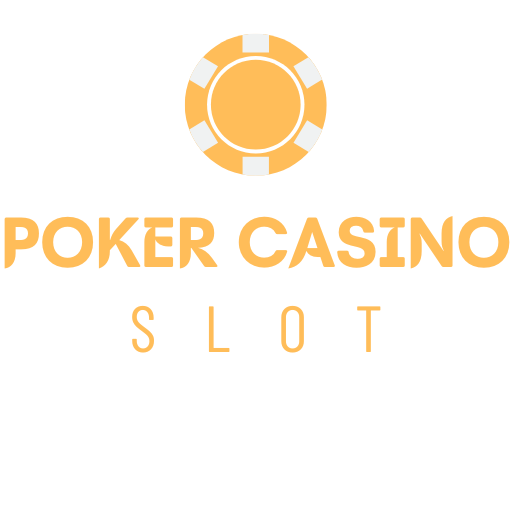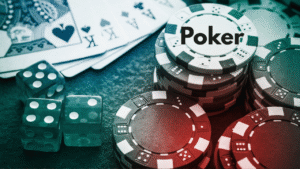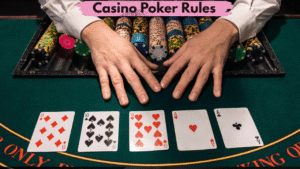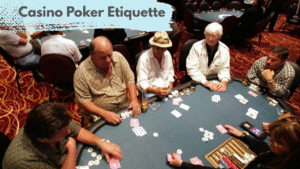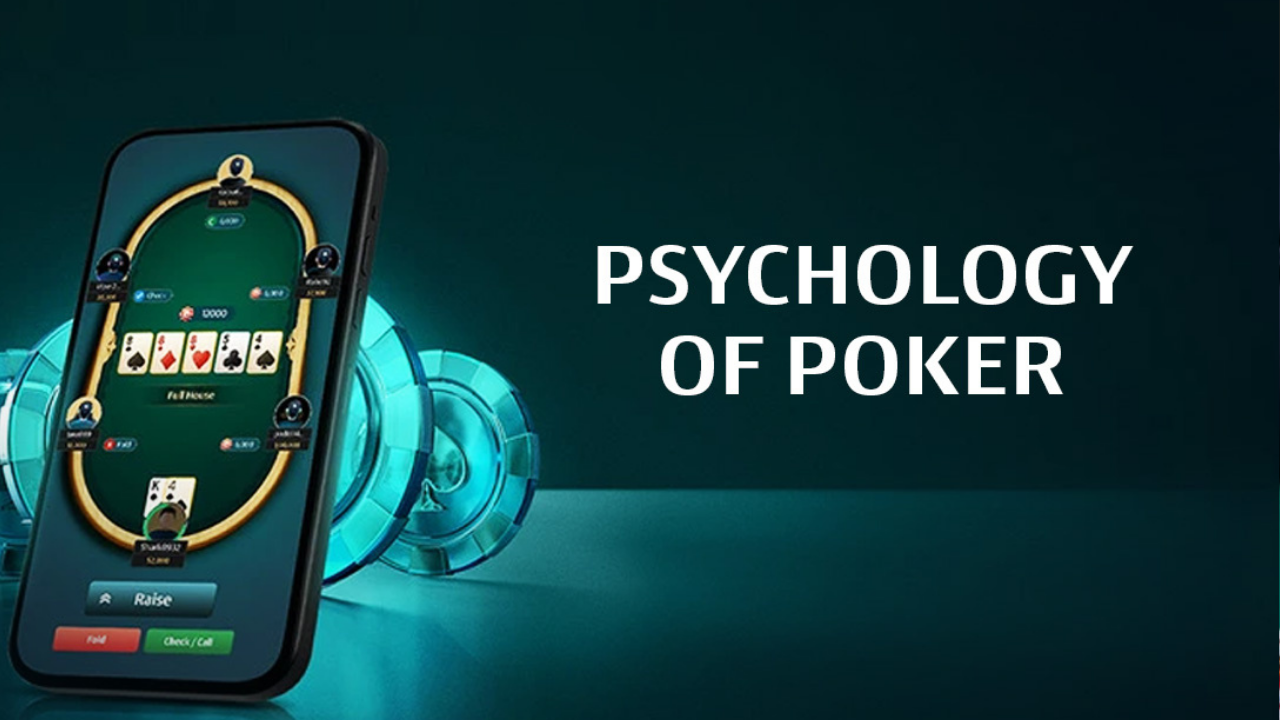
Psychology of Poker doesn’t just concern cards: it is a mental struggle, patience and Psychology of Poker. Obviously luck plays a role, but if you’ve ever been sitting at a poker table, you know that the real game is in reading your opponents. Being able to interpret thin instructions, body language and game schemes, can make the difference in escaping with a fortune or empty -handed hands.
We immerse ourselves in depth in the charming Psychology of Poker and explore how to strengthen your ability to read others as a professional.
Because psychology has more cards
Think about it: everyone at the table has access to the same deck, but not everyone has the same mentality. A weak hand can still win if you are too intelligent of your opponents. Poker is often described as a game of people who are played with cards and can no longer be true. If you learn to read the person in front of you instead of being obsessed with your hand, your chances of winning the stars.
The art of observation
Have you ever heard the saying: “Psychology of Poker is a game played in silence”? This is because the quiet moments often reveal more. Look how players act when they receive cards, how they bet and also how they breathe, can tell your volumes about their self -awareness or lack. The observation is not just about noticeing; It is about connecting the models over time.
Identify classic poker says
Psychology of Poker tells the bread and butter of reading the opponents. Some are clear while others are thin. Here are some classics:
Breasting hands: often a sign of excitement – usually a strong hand.
Fast headquarters in Chips: a player may think he bets big.
Too difficult: excessive compensation to look strong if they are actually weak. Sudden silence or chatter: extreme behavioral changes can indicate bluffing.
Of course, players also know these tricks, so be careful: they can tell you to throw you away.
The power of body language
Body language is at the table as an unspoken language. A significant attitude can suggest a defeat, while a player who protrudes forward can indicate trust. Visual contact is another great: some avoid hiding the nerves, others use it to intimidate. The key is first to recognize the basic behavior and therefore note sudden shifts.
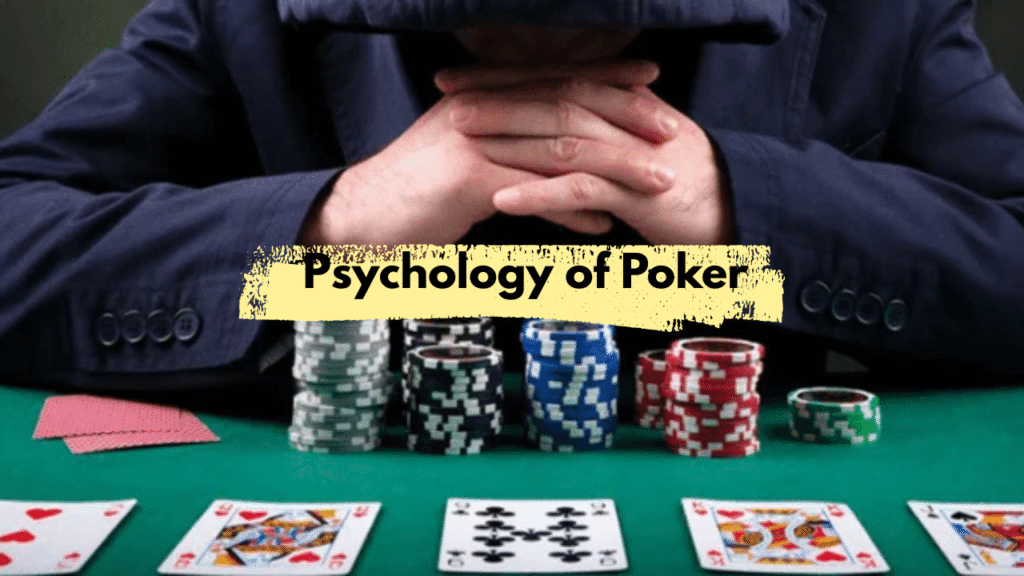
Psychology of Poker
Reading betting models
Although physical stories are useful, the figures never lie. Betting models are one of the strongest indicators of an opponent’s mentality. Ask yourself:
Do you play aggressively with strong hands or do you work often?
Do you suddenly increase after playing several laps in a conservative way?
Do you protect your battery or do you take risks?
The models tell a story and as soon as you connect the points, you will see through your strategy.
Emotional control and inclination
Psychology of Poker is not just about reading others, but it is also about managing yourself. Have you ever heard of “inclination”? It is when a player becomes emotional after a bad hand and begins to make reckless decisions. Recognizing the inclination in others gives you an advantage, but avoiding yourself is even more powerful. Consider poker as emotional chess: you can’t afford to take your feelings.
The bluff game
The bluff is the heart of Psychology of Poker. But here is the turn – the bluff is not only to pretend to have a good hand. It is a question of selling a credible story. The most successful bluffers know how to remain in conformity with their behavior so that the opponents buy in their story. The best players? You know when bluff and when to fold and you never have too much.
Cultural and personality differences
Not all players react in the same way. Cultural history, personality types and even age can affect poker behavior. For example, some players are naturally more expressive, while others remain stoic. A quiet player from the beginning may not be nervous: they can only be introverted. The trick is adjust your reading strategy, depending on who you are against you.
Use psychology as a weapon
Once you have mastered the observation, you can transform the script: use psychology to manipulate your opponents. This could mean that it becomes weak when they are strong or even create false to attract them into traps. Imagine the step that works at the poker table: the better your performance is, the more likely your opponent is.
The role of intuition
Sometimes, despite all the analyzes, they just have the feeling that something is not over. Intuition often comes from experience – your brain deals with subtle information that you may not notice consciously. Relying on your intestine does not mean that you ignore the logic, but combining instinct with observation can give you an unbeatable advantage.
Practice the ability to read people
Like any skill, reading the opponents is practicing. Start in small – not as people act in daily life. Do they touch their feet nervously during a meeting? Watch Aim when you tell a story? Over time, these observation skills are directly transferred to poker. The more you train, the shorter your reading processes.
Why the best players are master psychologists
If you look at the sizes – names like Daniel Negreanu or Phil Ivey – You will notice one thing: you are not only good with the cards. You are incredible by reading people. They treat poker less as a random game and more like a psychological puzzle. This separates the champions from occasional players.
Read More: Poker Face Secrets: Controlling Your Emotions
Conclusion
Psychology of Poker makes the game so fascinating. Reading opponents, says the task, interprets the models of Paris and the emotions of control – everything connects to a mental battlefield. You are not only playing cards. You play people.
